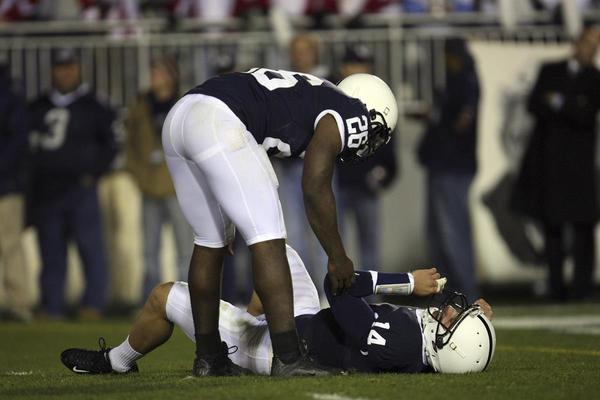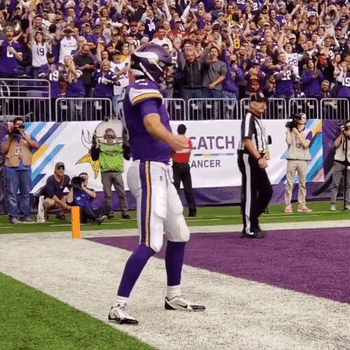College athletes are retiring from football due to concussion concerns

The GIST: On Monday, Stanford senior offensive lineman Branson Bragg announced his retirement from football, becoming the latest in a long line of college gridiron athletes to permanently step off the competitive field due to concussion concerns. Heartbreaking.
- While concussion-caused retirement has been discussed most widely in relation to the NFL, the issue affects NCAA athletes across many sports, as well.
The background: A concussion is a traumatic brain injury that can cause problems with balance, memory, concentration and coordination. Their effects are usually temporary, but repetitive brain trauma (even if it’s not “concussion” level) over many years can cause Chronic Traumatic Encephalopathy (CTE), an incurable degenerative brain disease that can lead to disability and early death.
- At first, CTE was considered a boxers’ disease, but in 2002, it was found postmortem in the brain of ex–Pittsburgh Steeler Mike Webster, sparking research into the brains of former athletes. And yes, there’s a movie about it for extra credit.
The proof: A 2017 study found CTE in 99% of NFL brains and 91% of college football players. But it’s not just the giants of the gridiron whose heads are at risk: CTE impacts athletes who participate in hockey, rugby, soccer, wrestling and boxing, as well.
- CTE cannot actually be diagnosed until after death, which is why dozens of current and former pro athletes — like USWNT players Briana Scurry, Abby Wambach and Megan Rapinoe — have pledged to donate their brains to CTE research.
The progress needed: While the NFL has taken steps to better protect players’ brains, the NCAA still hasn’t acknowledged the link between head injuries and CTE. In 2007, the NCAA implemented modest changes to college football to reduce concussions but has shied away from enforceable protocols in lieu of “best practices” with no accountability or oversight.
- Often, it’s in the hands of players, like Bragg, to protect themselves in the only way possible: by leaving the sport they love. It begs the question — why won’t the NCAA take steps to protect its athletes?
Enjoying this article? Want more?

Sign up for The GIST and receive the latest sports news straight to your inbox three times a week.



